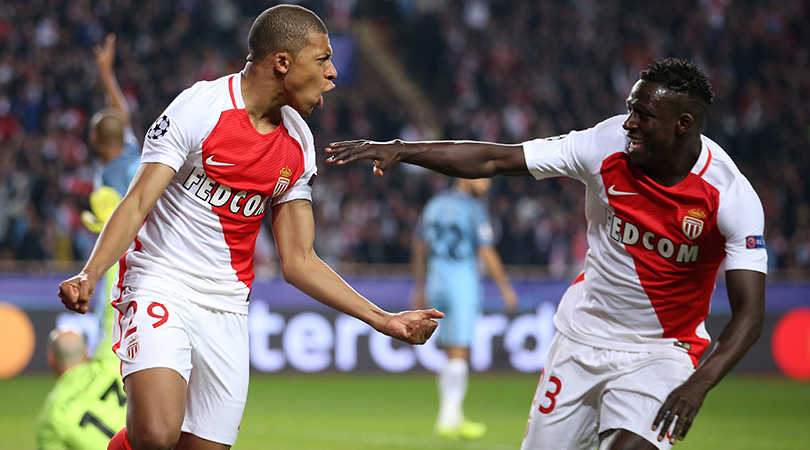Nobody is focusing on the most impressive thing about Manchester City right now – but they should be
Pep Guardiola's side are sweeping all before them in the Premier League once again this season – but arguably more admirable is ttheir astonishing defensive record, writes Daniel Storey
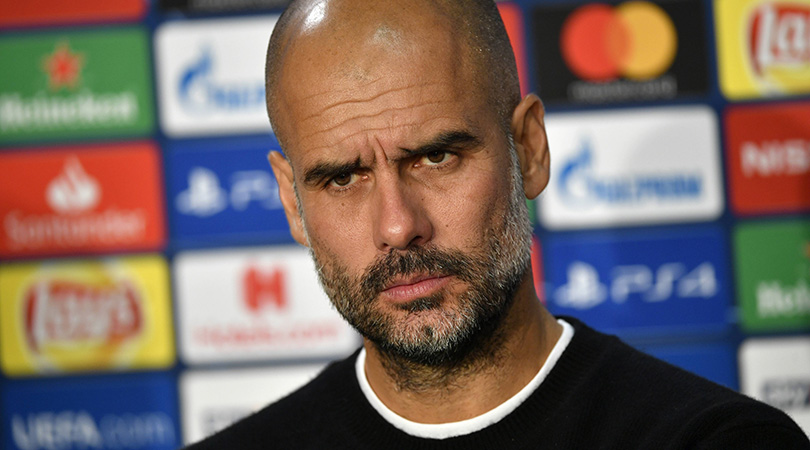
Attacking is considered to be more fun than defending. There are many more children in the playgrounds of England who imagine themselves scoring goals than stopping them being scored. They go to sleep to dream of cup final winners, not match-saving tackles. Survey 1,000 players of FIFA’s career mode; far more will have chosen to be centre-forwards or No.10s than right-backs or gnarled central defenders.
“I think I won because the strikers haven’t had their shooting boots on,” said Fabio Cannavaro in 2006 after being named the best player in the world for that year, tongue firmly inserted into cheek. Since the Ballon d’Or was established in 1956, the Italian is one of only four defensive players to have won the award (Lev Yashin, Franz Beckenbauer and Matthias Sammer were the other three).
The favouritism towards attacking players is nothing new.
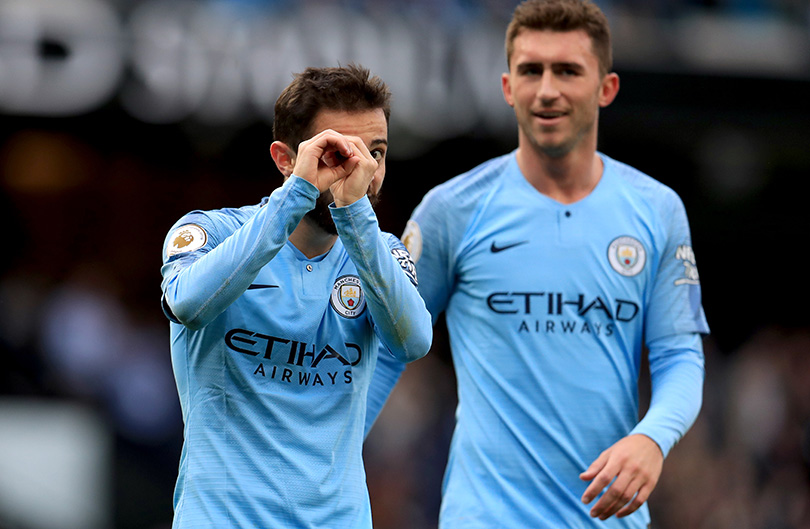
Everyone’s a winner
It's a nonsense, of course, but when watching Manchester City this season, you would be forgiven for wowing only at their attacking prowess. Since home defeat to Lyon in the Champions League provoked Pep Guardiola to reinforce his message that complacency cannot be tolerated, City have scored 17 times in six matches. Only Riyad Mahrez’s missed penalty at Anfield stopped them registering six straight victories.
It’s the variation in City’s attack that is most alluring: their last 12 goals have been scored by nine different players. If the pull-back to Raheem Sterling six yards from goal doesn’t get you, Sergio Aguero waiting on the penalty spot will. If Leroy Sané's pace is thwarted, the chances are that David Silva or Bernardo Silva’s trickery won’t be. All of this has been achieved with Kevin De Bruyne absent. It’s enough to put the fear into any opposition manager.
The deep understanding between players that Guardiola forged at Barcelona is incredibly difficult – almost impossible – to replicate. It relied upon the La Masia conveyor belt and the short passing Cruyffian ethos established under the great man’s stewardship.
Get FourFourTwo Newsletter
The best features, fun and footballing quizzes, straight to your inbox every week.
But City are getting close. Guardiola’s principles demand that his City players learn each other’s behavioural patterns on the pitch in order to second guess what a team-mate will do next. The passing triangles, played at an increasing tempo until the opposition is lured into leaving a player in space or over-committing in one area, is mesmerising to watch.
Opposition supporters may disagree, but there is no better team in Europe to watch at their attacking peak. For all the talk of bridging the gap to City this season, they set a record last season for goals scored with 106. Continue at their current rate, and Guardiola’s team will score 110 this season. They have already played their closest challengers for the title away from home.
Case for the defence
Yet the most frightening thing for Guardiola’s peers is that Manchester City’s attack is actually being outperformed by their defence. For a team that won the Premier League by the greatest margin in the competition’s history last season, the suspicion was that City were suspect defensively. They conceded only one goal fewer than Liverpool and kept fewer clean sheets that Manchester United. Score once, and you could put City’s entire defence on edge. Just ask Liverpool.
Suspect no more. City last conceded in the league against Newcastle on September 1. They have now gone over 500 league minutes without being breached. If their attack has barely needed to improve this season, the defence is far more resilient.
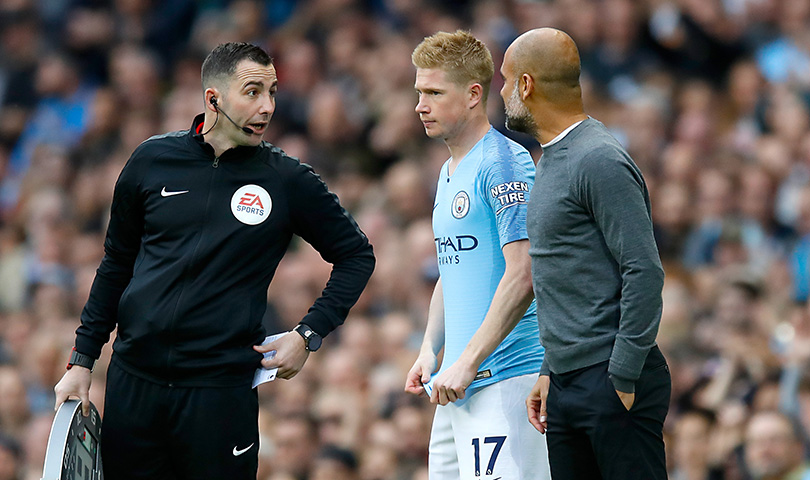
The figures are frankly outrageous. City have allowed the opposition only 55 shots in total, 23 fewer than any other team and half as many as Tottenham. They have faced only 16 shots on target, again comfortably the best record in the Premier League. By way of contrast, Manchester United have allowed 44. Finally, as defined by Opta, City have allowed only five big chances this season in nine matches. Surprise surprise, that’s the best record in the league.
Key to this new plan is Aymeric Laporte, whose arrival in January gave Guardiola the left-footed central defender that he believed was crucial for his passing system. Laporte’s continued absence from the senior France squad gave him a football-less summer, and breaks in both September and October. It’s no coincidence that he is the only City outfield player to have appeared in every minute of their league season.
Options
Around Laporte, Guardiola has an embarrassment of riches. Nicolas Otamendi, named in the PFA Team of the Year last season, has started three matches, the same as captain Vincent Kompany. John Stones has started five, but was used as an auxiliary right-back against Burnley on Saturday with Kyle Walker and Danilo absent.
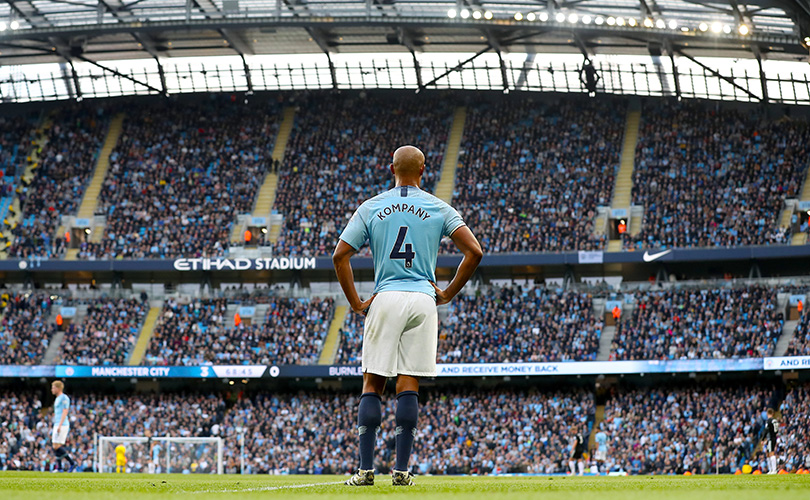
The assumption is that Stones and Laporte will be the long-term first-choice pairing, but competition for places keeps everyone motivated to perform. Across Manchester, Jose Mourinho might consider his old foe to have four more proficient options than his own four central defenders. Guardiola will argue that he has nurtured his defenders rather than chopping, changing and lambasting them after every mistake.
Alex Ferguson’s old adage was that the ‘attack wins you games, defence wins you titles’. Manchester City’s attack is so supreme that it could cover a multitude of defensive sins, but Guardiola’s challenge in Manchester was to combine sustained domestic success with Champions League glory. He now has the right balance to achieve the dream.
